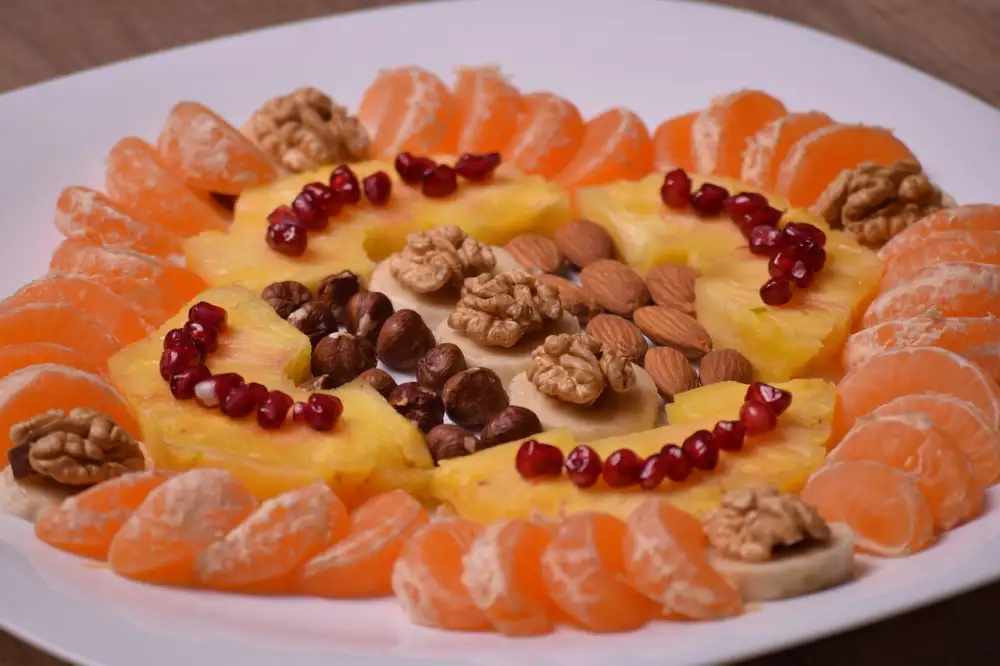Discover Delicious and Nutritious Weight Loss Meals: Fuel Your Journey to a Healthier You!

- Importance of a Balanced Diet for Weight Loss
- Incorporating Lean Proteins in Your Meals
- Including Fiber-Rich Foods for Satiety and Digestive Health
- Choosing Whole Grains for Long-lasting Energy
- Adding Healthy Fats for Nutrient Absorption and Flavor
- Incorporating a Variety of Colorful Fruits and Vegetables
- Using Herbs and Spices to Enhance Flavor without Adding Calories
- Avoiding Processed Foods and Added Sugars
- Portion Control and Mindful Eating for Weight Management
Embarking on a weight loss journey can be both exciting and challenging. One of the key factors in achieving your goals is to adopt a healthy eating plan that supports your weight loss efforts. By incorporating nutritious and delicious meals into your daily routine, you can fuel your body with the right nutrients while still enjoying flavorful dishes. In this article, we will explore various strategies to create meals that are not only satisfying but also promote weight loss. From incorporating lean proteins to choosing whole grains and colorful fruits and vegetables, we will guide you on how to create a sustainable meal plan that will help you achieve your desired results. So let's dive in and discover the world of delicious and nutritious weight loss meals!
Importance of a Balanced Diet for Weight Loss
To achieve successful weight loss, it is essential to have a balanced diet. A balanced diet provides the body with all the necessary nutrients while keeping calorie intake in check. It ensures that you are getting the right amount of proteins, carbohydrates, fats, vitamins, and minerals. This helps to maintain muscle mass, support metabolism, and promote overall health. A balanced diet also prevents nutrient deficiencies and cravings, which can lead to overeating unhealthy foods. By focusing on a variety of nutritious foods, you can fuel your body properly and achieve sustainable weight loss.
Incorporating Lean Proteins in Your Meals
Incorporating lean proteins in your meals is essential for weight loss. Not only do they help build and repair muscles, but they also keep you feeling full and satisfied for longer periods. Opt for skinless chicken breast, turkey, fish, tofu, or legumes like beans and lentils. These protein sources are low in fat and calories while providing the necessary nutrients your body needs. Be creative with your meal choices by adding grilled chicken to salads or making a delicious stir-fry with tofu and vegetables. By including lean proteins in your meals, you'll be fueling your body with the right nutrients while promoting weight loss.
Including Fiber-Rich Foods for Satiety and Digestive Health
When it comes to weight loss, incorporating fiber-rich foods into your meals is essential. Not only do these foods keep you feeling fuller for longer, but they also promote healthy digestion.
Fiber adds bulk to your meals without adding extra calories. It slows down the digestion process, allowing you to feel satisfied after eating. This can help prevent overeating and unnecessary snacking throughout the day.
Some excellent sources of fiber include fruits like apples, berries, and pears, as well as vegetables like broccoli, Brussels sprouts, and carrots. Whole grains such as quinoa, brown rice, and oats are also high in fiber.
By including these fiber-rich foods in your meals, you'll not only support your weight loss goals but also improve your overall digestive health. So go ahead and add a variety of colorful fruits, vegetables, and whole grains to your plate for a delicious and nutritious way to fuel your weight loss journey.
Choosing Whole Grains for Long-lasting Energy
When it comes to weight loss, choosing the right carbohydrates is crucial. Whole grains are an excellent choice as they provide long-lasting energy and keep you feeling full for longer periods of time. Unlike refined grains, which have been stripped of their fiber and nutrients, whole grains retain their natural goodness. They are packed with vitamins, minerals, and dietary fiber that aid in digestion and promote a healthy gut. Some examples of whole grains include quinoa, brown rice, oats, and whole wheat bread. Incorporating these into your meals will not only provide sustained energy but also contribute to your overall health and well-being.
Adding Healthy Fats for Nutrient Absorption and Flavor
Adding healthy fats to your meals is not only important for flavor but also for nutrient absorption. Healthy fats, such as avocados, nuts, and olive oil, contain essential fatty acids that help the body absorb fat-soluble vitamins like vitamins A, D, E, and K. These fats also provide a feeling of satiety, helping to curb cravings and prevent overeating. When cooking or preparing meals, try incorporating these healthy fats to enhance both taste and nutritional value.
Incorporating a Variety of Colorful Fruits and Vegetables
Incorporating a variety of colorful fruits and vegetables into your weight loss meals is essential for both nutrition and flavor. Fruits and vegetables are packed with vitamins, minerals, and antioxidants that support overall health. They also add vibrant colors to your plate, making your meals visually appealing. Aim to include a rainbow of produce in your diet, such as leafy greens, red tomatoes, orange carrots, yellow bell peppers, and purple eggplants. These colorful additions will not only enhance the taste of your meals but also provide essential nutrients to fuel your weight loss journey.
Using Herbs and Spices to Enhance Flavor without Adding Calories
Using herbs and spices is a fantastic way to add flavor to your meals without adding unnecessary calories. Experimenting with different combinations can transform a plain dish into a culinary masterpiece. For example, try using fresh basil and oregano in Italian dishes, or cumin and coriander in Indian cuisine. Not only do these additions enhance the taste, but they also offer numerous health benefits. Herbs like rosemary and thyme are packed with antioxidants, while spices such as turmeric have anti-inflammatory properties. So go ahead, get creative with your seasonings and enjoy delicious meals guilt-free!
Avoiding Processed Foods and Added Sugars
When it comes to weight loss, one of the most important things to keep in mind is to avoid processed foods and added sugars. Processed foods are often high in calories, unhealthy fats, and sodium, while being low in nutrients. These foods can sabotage your weight loss efforts and make it harder for you to reach your goals.
Added sugars, on the other hand, can lead to weight gain and increase your risk of developing chronic diseases such as diabetes and heart disease. They provide empty calories without any nutritional value, causing spikes in blood sugar levels and cravings for more sugary foods.
To avoid processed foods, opt for whole, unprocessed ingredients whenever possible. Choose fresh fruits and vegetables, lean proteins such as chicken or fish, and whole grains like quinoa or brown rice. Read food labels carefully and avoid products that contain artificial additives, preservatives, or high amounts of sodium.
When it comes to added sugars, be mindful of hidden sources such as sugary drinks, flavored yogurts, cereals, sauces, and condiments. Instead of reaching for these items, satisfy your sweet tooth with naturally sweet fruits or use spices like cinnamon or vanilla extract to add flavor without adding extra sugar.
By avoiding processed foods and added sugars, you'll not only support your weight loss journey but also improve your overall health. Remember that making small changes in your diet can have a big impact on your well-being.
Portion Control and Mindful Eating for Weight Management
Portion control and mindful eating are crucial for successful weight management. It's not just about what you eat, but also how much you eat. By being aware of portion sizes, you can prevent overeating and ensure that you're consuming the right amount of calories for your body's needs. One way to practice portion control is by using smaller plates and bowls to trick your mind into thinking you're eating more than you actually are. Additionally, take your time while eating, chew slowly, and savor each bite. This allows your brain to register when you're full and prevents mindless snacking. By incorporating portion control and practicing mindful eating, you can maintain a healthy weight without feeling deprived or restricted.
In conclusion, creating a sustainable and delicious meal plan for weight loss is key to achieving your health goals. By incorporating lean proteins, fiber-rich foods, whole grains, healthy fats, colorful fruits and vegetables, herbs and spices, and avoiding processed foods and added sugars, you can fuel your journey to a healthier you. Remember to practice portion control and mindful eating for effective weight management. With these strategies in place, you can enjoy nutritious meals that support your weight loss efforts without sacrificing taste or satisfaction.
Published: 03. 01. 2024
Category: Food



